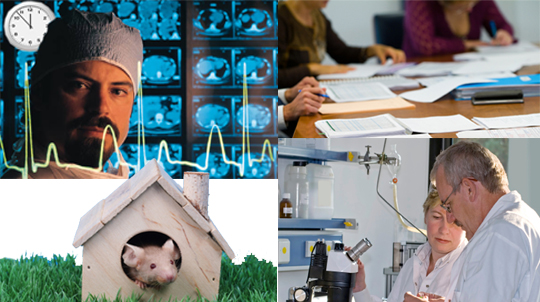Technique Refinement and Innovation Lab (TRI-Lab)
The mission of the Technique Refinement and Innovation Lab (TRI-Lab) is to provide support for implementing new and emerging technologies, techniques and best practices in animal research that benefit both the wellbeing of research animals and the effectiveness and efficiency of research.
Humane Experimental Technique
The VSC, and Stanford are committed to providing the highest level of care and wellbeing to research animals on campus. While health and husbandry are essential to good wellbeing and good science, experimental technique (how the experiments themselves are designed and carried out) is equally important. From aspects of housing and breeding protocols, to the particular measures chosen and how they are implemented, to experimental design and statistics – the experimental technique can have an enormous impact on the wellbeing of the animal, on the quality of the data generated, and on the ultimate cost, time, and outcome of the research. Unlike health and husbandry, which is overseen by the VSC, experimental technique is overseen by the individual researcher. The TRI-Lab works with individual researchers to find opportunities to optimize technique for the benefit of the animals and the science.
Services
We are available for consulting and collaborative support in any of the main areas of technique refinement (for general enquiries) in basic and translation animal research. The lab also provides a variety of services :
-
Bio-Statistics support, and experimental design optimization. We have particular expertise in high-power designs, and epidemiological, data mining, Monte-Carlo and simulation studies. We can provide consultation on design and sample size justification for APLAC (IACUC) protocol submission; help with data analysis after the fact (including response to paper review); or a full service.
Request information at . -
Apparatus design and data acquisition system design. With particular expertise in the design of automated apparatus and data-acquisition systems, we can design and build custom apparatus, including electronics and software for a wide variety of applications. Request information at .
-
3D printing service. The lab runs a high-definition 3D plastic printer. Printed parts are water tight, air tight plastic (not resin), providing superior physical and mechanical properties over other processes. We provide basic error checking and printing of STL files provided by other labs, and we can also provide a full design service.
Request information at . -
Behavioral management, animal breeding and animal wellbeing. We provide a trouble-shooting service for behavioral, breeding, and welfare issues in animal colonies managed by investigators, as part of the VSC support services. We help troubleshoot particular problems (e.g. changes in breeding performance); as well as providing impact/benefit assessment for changes in housing, handling and enrichment. Request information at .
-
Breeding colony management. We provide a full breeding colony management service, working with investigators to plan and manage the breeding of mice onsite.

